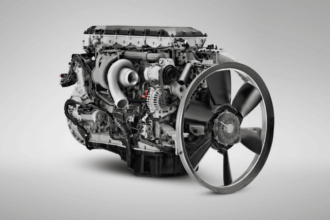Early closure of the UK government’s subsidy scheme for onshore wind energy development would mean cancellation of around 250 projects and major negative impact on the large proportion of the crane and transport industry serving this area of the market.
Around 2,500 turbines are now unlikely to be built, said Amber Rudd, Secretary of State for Energy and Climate Change, in a statement delivered to Parliament in the UK on 22 June. Rudd set out proposals “to end new subsidies for onshore wind, specifically in relation to the Renewables Obligation [RO], which will be closed to new onshore wind from 1st April 2016 – a year earlier than planned.”
Rudd continued, “I have proposed a grace period which would continue to give access to support under the RO to those projects which, as of 18th June 2015, already have planning consent, a grid connection offer and acceptance and evidence of land rights for the site on which their projects will be built.
“We estimate that around 7.1 GW of onshore wind capacity proposed across the UK will not be eligible for the grace period and are therefore unlikely to go ahead as a result of [the] announcement of the 18 June.
“That equates to around 250 projects totalling around 2,500 turbines now unlikely to be built.”
Even a very basic and conservative estimate of how much business would be lost suggests somewhere over 3,000 days of crane rental and 25,000 fewer truck loads, just for the turbines alone, not including base materials and other infrastructure construction and installation.
David Collett, managing director at Yorkshire, UK-based Collett & Sons Ltd, a leading player in the transportation of wind turbine components, commented on the cancellation plan, “We could see over 12 months ago that the new CfD (Contract for Difference) regulations would have an influence on the wind parks for the last years of this decade. Then, as the General Election came on to the horizon, the original plan announced before it was bad news for our industry, in that we could see that the wind energy industry would be curtailing their plans by March 2017. However, the recent news by this Government that this is to be cut dead in its tracks by March 2016, is catastrophic. This will certainly have an impact on our business and affect our future plans for growth.”
A supplier of construction intelligence information, Barbour ABI, reported that the early end to the subsidy jeopardises 338 proposed wind farms worth more than £6.4 billion.




